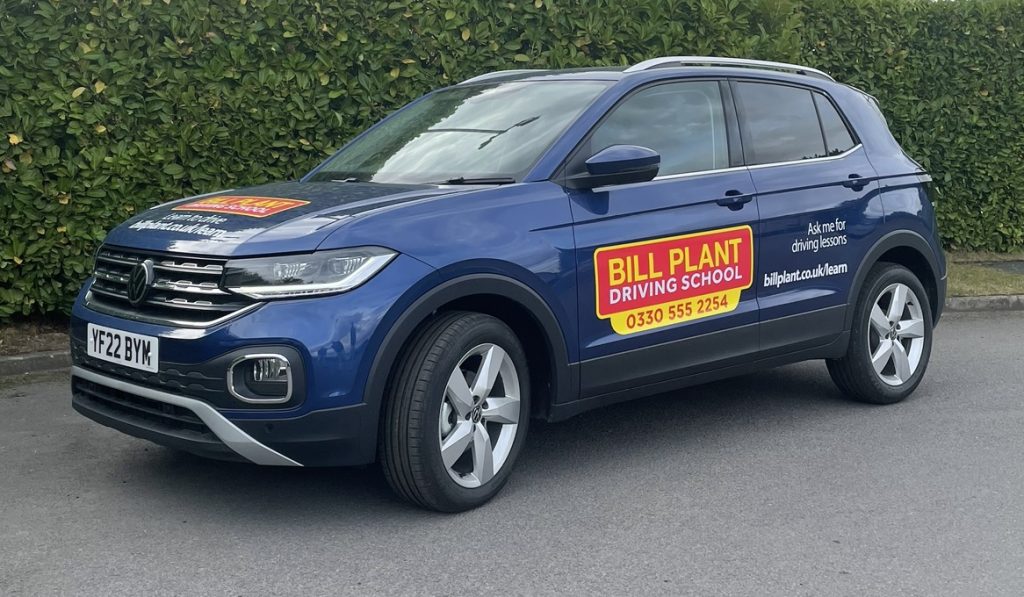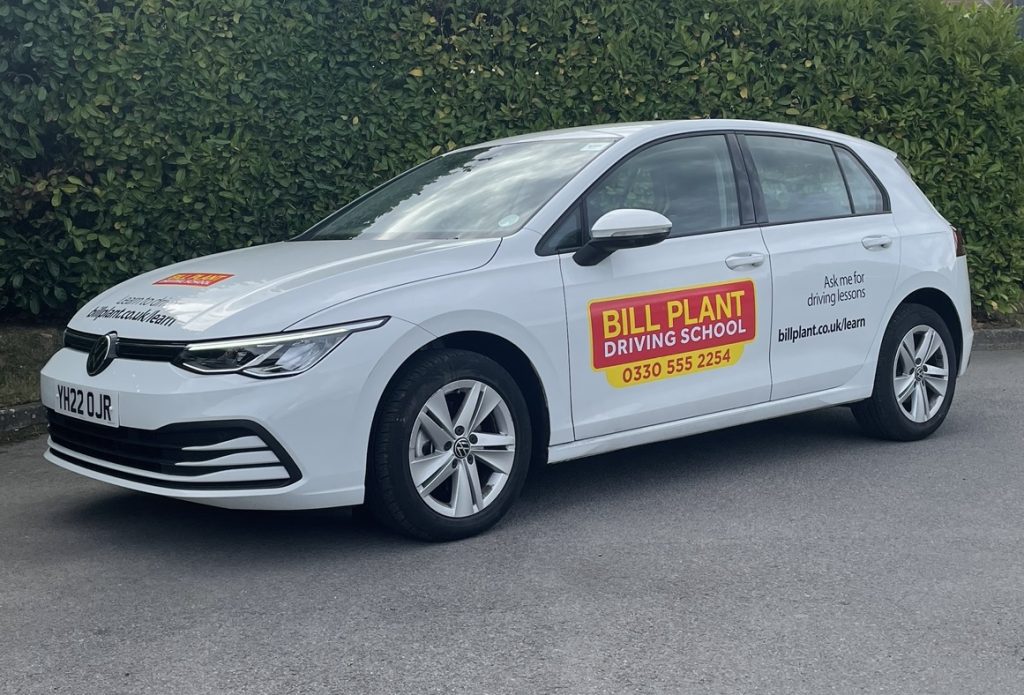
Learning to drive is one of the most exciting parts of growing up and becoming independent. However, it can be a costly task to undertake with lots of outgoings you need to consider, from the driving lessons cost to the practical driving test cost.
We’ve pulled together this handy guide to break down the key things you will need to account for and how to save money while learning to drive.
Costs you’ll need to pay to learn to drive
You will need to consider several costs when you begin to learn to drive. The price of learning to drive includes your:
- Application for your provisional driving licence
- Driving lessons
- Theory test
- Theory test app and revision material
- Practical driving test
- Use of your driving instructor’s car for your practical driving test
Provisional driving licence cost
Your provisional licence will cost £34 if you apply online, or £43 if you apply by post. You need a provisional driving licence to learn to drive in the UK. A provisional driving licence means you can have professional lessons and drive under the supervision of a driving instructor or learn with another driver over the age of 21 who has held a full driving licence for at least three years.
How much do driving lessons cost in the UK?
On average the cost of driving lessons in the UK is £30 an hour, however this can vary depending on the location of your driving lessons (for example in London, driving lessons could cost as much as £35 in some places) and the driving school you learn to drive with.
If you don’t want to spend hours on your driving lessons, you could always pay for an intense driving course. A driving instructor would be able to tell you which route is better for you to take once you have had your initial lesson.
How much is the cost of the driving theory and practical test?
Before you can complete your practical test you will first need to pass your theory test. It will cost you £23 to book your theory test online, and remember this test will test your knowledge on the highway code and hazards.
Once you have passed the theory test you will be able to book your practical driving test to attain your full licence. The Driver and Vehicle Licensing Agency (DVLA) charges £62 to take its standard practical driving test on a weekday or £75 for evenings, weekends and bank holidays.
If you would like to get in some additional practice before the actual driving test, you can ask your driving instructor to provide you with an extra hour lesson beforehand to calm any nerves you may have.
How much on average does it cost to learn to drive?
Based on the outgoings above, the total average cost of learning to drive is around £1,536. This cost of learning to drive is broken down in the following way:
| Cost of learning to drive | Cost |
| Provisional driving licence | £34 online or £43 by post |
| Driving lessons (top end of the UK estimate at £35 an hour over 45 lessons) | £1,575 |
| Theory test (Including hazard perception test) | £23 |
| Theory test app (for example, The Official DVLA Theory Test and Hazard Perception Kit app) | £15 for a 30-day subscription |
| Practical driving test | £62 on a weekday or £75 for evenings, weekends and bank holidays. |
| Use of driving instructor’s car on test day | £90 – £120 based on hours required |
| Total (Using highest averages) | £1,856 |
Of course, this total cost will depend on a few factors, including the driving school you use to learn to drive, whether you pass your tests on the first try, the number of lessons you need and which theory test revision material you use.
What immediate costs are there after you have passed your driving test?

Congratulations, you have passed your driving test and got your full driving licence so you can now legally drive! Unfortunately the costs you need to pay don’t stop just because you have now passed your driving test. Below we outline the three most important immediate costs after you have passed your driving test and how much the total cost of your driving journey would be, taking into account these costs.
Cost of your first car
The average cost of your first car can range from £3,000-£4,000, depending on whether you purchase it second hand or brand new. The type of fuel the car takes will also affect the price you pay for it. Choosing a secondhand car may be beneficial for the first time or younger drivers so if an accident does occur, the amount it costs to repair the damage is lower.
Learner driver insurance
Whether you are learning in your own car or someone else’s car like that of a family member or a parents car, you need to have a learner driver insurance policy to cover the costs involved with an accident, should you have one while you are preparing for your driving test.
Once you have passed your test you will move away from learner insurance and will need to research car insurance quotes to take out a full car insurance policy. The average premium for young drivers aged between 18 and 20 years is £972, according to data from the Association of British Insurers (ABI).
Providers such as MyFirstUK offer competitive pricing. By using our referral code, BILLPLANT100 you can save £100 off an annual cover policy!
Car tax
How much tax you pay will be dependent on the make, model, the number of miles the car has done (especially if it is second hand) and the fuel type the car consumes. This table from the RAC breaks down the amount of tax the average person would be expected to pay based on the learner driver having a second-hand car and the fuel type of the vehicle.
| Fuel type | Single 12-month payment | Single 12-month payment by Direct Debit | Total of 12 monthly payments by Direct Debit | Single 6-month payment | Single 6-month payment by Direct Debit |
| Petrol or diesel | £145 | £145 | £152.25 | £79.75 | £76.13 |
| Electric | £0 | N/A | N/A | £0 | N/A |
| Alternative* | £135 | £135 | £141.75 | £74.25 | £70.88 |
*Alternative fuel vehicles include hybrids, bioethanol and liquid petroleum gas.
According to The Society of Motor Manufacturers & Traders’ statistics, petrol and diesel cars accounted for 90% of new car registrations in 2019, so for our calculations, we will take the highest possible annual tax costs for petrol and diesel cars: £152.25.
The total cost of learning to drive, including initial outgoings
Taking into account the initial £1,856 estimate that it would cost a young driver to get to the point of legally being able to drive, with these post-test costs it could cost the average learner driver around £6,980 to learn to drive and then get themselves on the road.
What is the cheapest way to learn to drive? 4 Money-Saving Tips For Learner Drivers
For those of you wanting to save money while you learn how to drive, we’ve put together four of the best tips for saving money for learner drivers.
Block Book Lessons
Most driving instructors like to offer block book lessons that work out to be cheaper than purchasing lessons one by one. Block booking lessons means you pay for a set amount of lessons in one go (usually ten lessons) or double up your lesson time to 2 hours rather than one hour to get the most out of your driving lesson. Driving instructors might even put extra discounts on introductory lessons, booking in advance or around the festive season, so keep an eye out for deals and offers that will get you practising sooner.
Intensive driving courses
An intensive driving course is perfect for those who want to pass their driving test in the shortest amount of time possible with only one payment. Bill Plant Driving School offers a hybrid approach to intensive courses. We recommend taking a more tailored approach to driving lessons based on your individual requirements.
The first thing to do would be to book a provisional driving 2-hour assessment lesson with your local Bill Plant Driving School driving instructor, but on your initial booking, explain to them your need to pass as soon as possible / before a specific date and ask them for their honest feedback on what they can provide in terms of intensive courses.
Take out provisional driver’s insurance
Provisional driver’s insurance (or learner driver car insurance) will allow you to start building up your no claims bonus before you’ve passed your test and, in the long run, make your premiums cheaper each year. Make sure to take out the policy in your name, so it doesn’t affect the friend or family member’s car you are learning in.
Install a BlackBox onto your car
Having a BlackBox in your car can reduce your insurance premium over some time, especially for young drivers. The small device measures how fast you drive, when you brake, what time of day you drive, how quickly you accelerate and how you drive around corners. If you drive safely, you will get rewarded with cheaper monthly premiums or more mileage of available cover.

